THE VIRAL CONTENT MASTERY SYSTEM
Master viral content creation with this proven system. Learn psychology-backed strategies to create engaging posts that get massive reach & engagement.
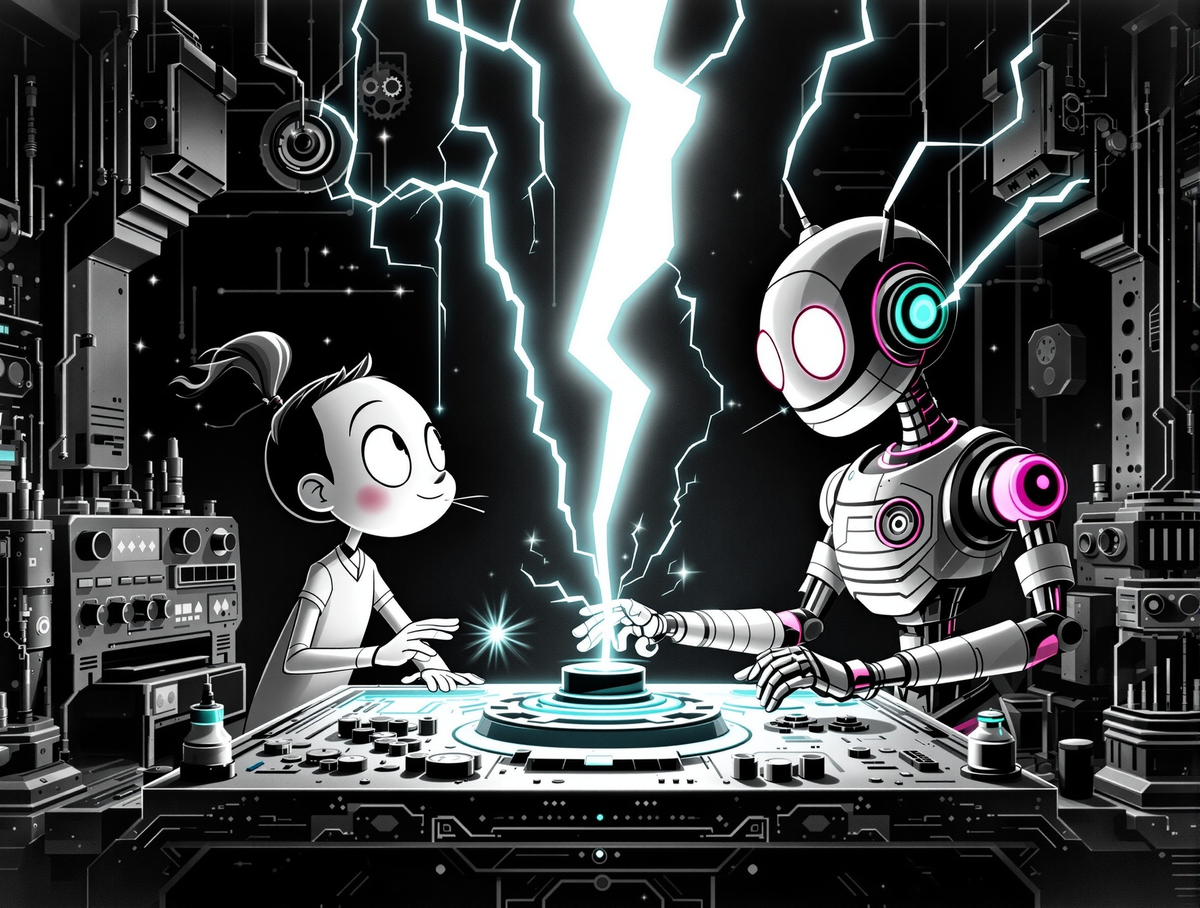
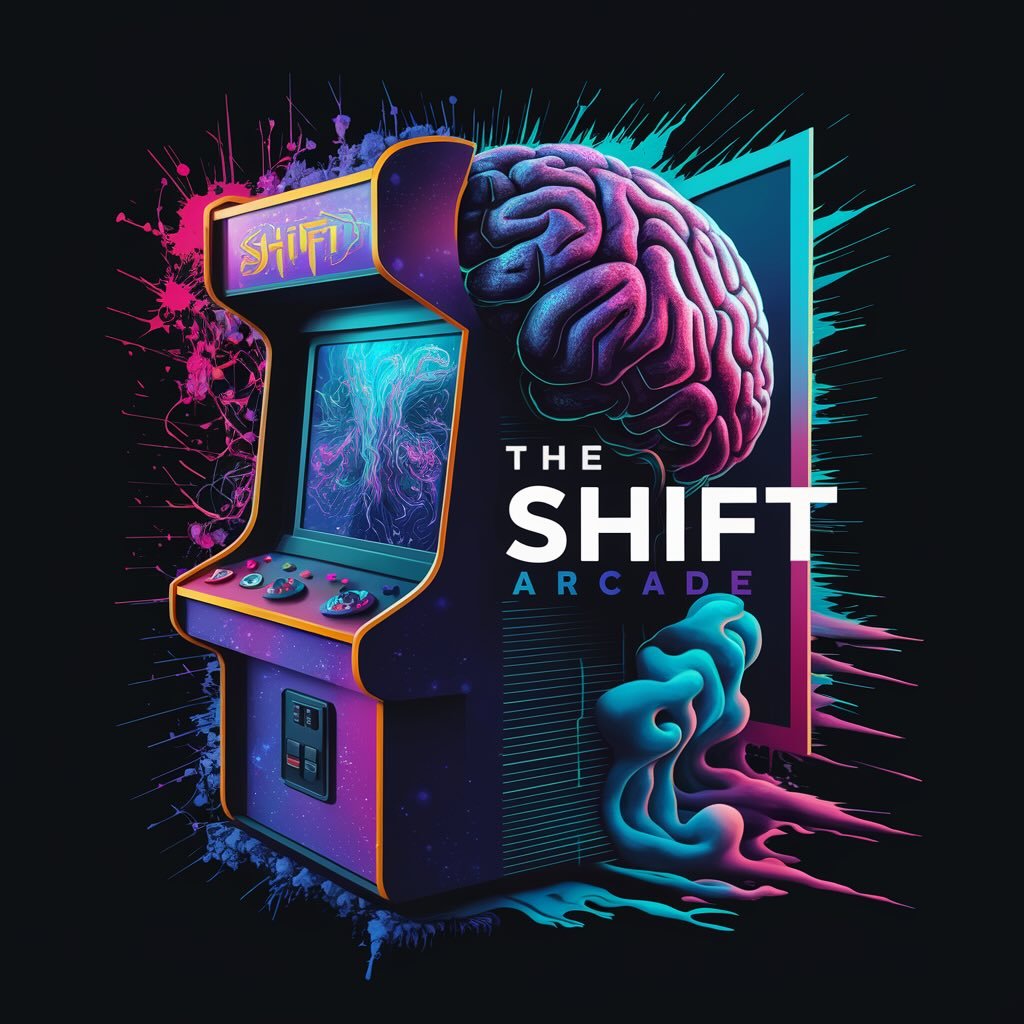
Human Vision × AI Power
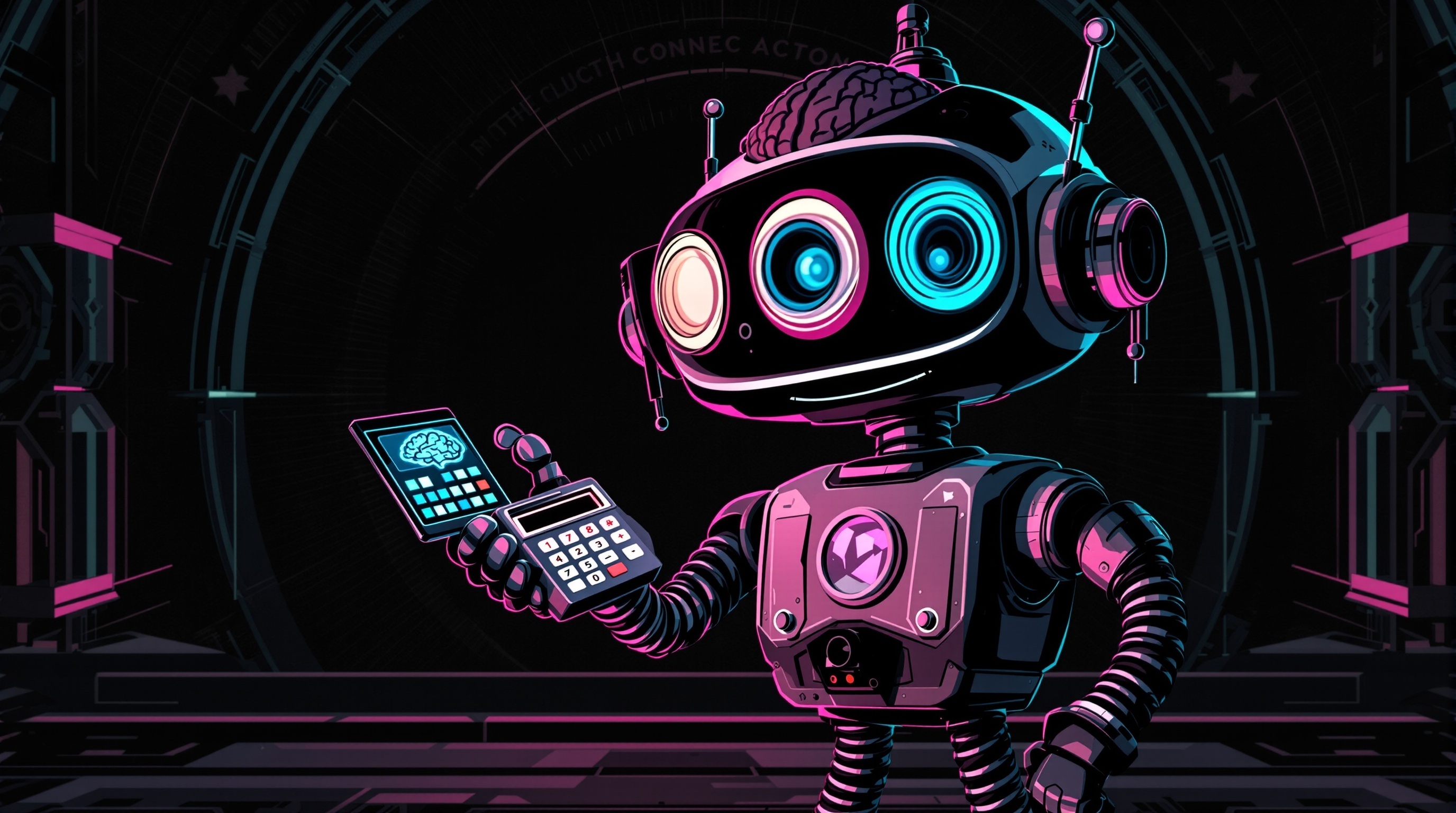
Executive Summary
This comprehensive guide bridges the critical gap between mindset and methodology in AI-powered content creation. It establishes the foundational principle that AI is a sophisticated calculator for creativity—capable of incredible processing power but entirely dependent on human intelligence for direction, meaning, and quality control.
The guide progresses systematically from philosophical foundation to practical implementation. You'll learn why the Human × AI partnership creates exponential results, not just additive improvements, and how to maintain creative authenticity while scaling to viral proportions.
Key Learning Outcome: Master the strategic use of AI as your creative amplification tool while maintaining complete human control over vision, meaning, and emotional resonance—creating content that goes viral because it genuinely connects with human experience.
PART 1: FOUNDATION
The Human-AI Creative Partnership

Chapter 1: The Calculator Principle - Understanding Your Creative Weapon
The most dangerous misconception in AI-powered creativity is treating artificial intelligence as a replacement for human creative thinking. This fundamental misunderstanding leads to generic, soulless content that fails to connect with audiences despite technical perfection.
AI is not a creative mind—it's a creative calculator. Just as a calculator doesn't replace mathematical thinking but amplifies computational capability, AI doesn't replace creativity but amplifies creative processing power at superhuman speeds.
What AI Does vs. What AI Cannot Do
| What AI Does for Creativity | What AI CANNOT Do |
|---|---|
| Generates vast combinations of ideas instantly | Decide which creative direction has meaning |
| Processes and synthesizes information at scale | Understand the deeper purpose behind creation |
| Eliminates repetitive creative tasks | Determine if output resonates emotionally |
| Produces content variations at impossible speeds | Apply creative work meaningfully to human experiences |
| Cross-references patterns across massive datasets | Judge cultural relevance or appropriateness |
The GIGO Principle for Content Creation
"Garbage In, Garbage Out"—Wrong inputs produce wrong outputs, regardless of AI sophistication. A calculator given incorrect numbers will produce mathematically perfect but meaninglessly wrong results. Similarly, AI given poor creative direction will produce technically competent but strategically useless content.
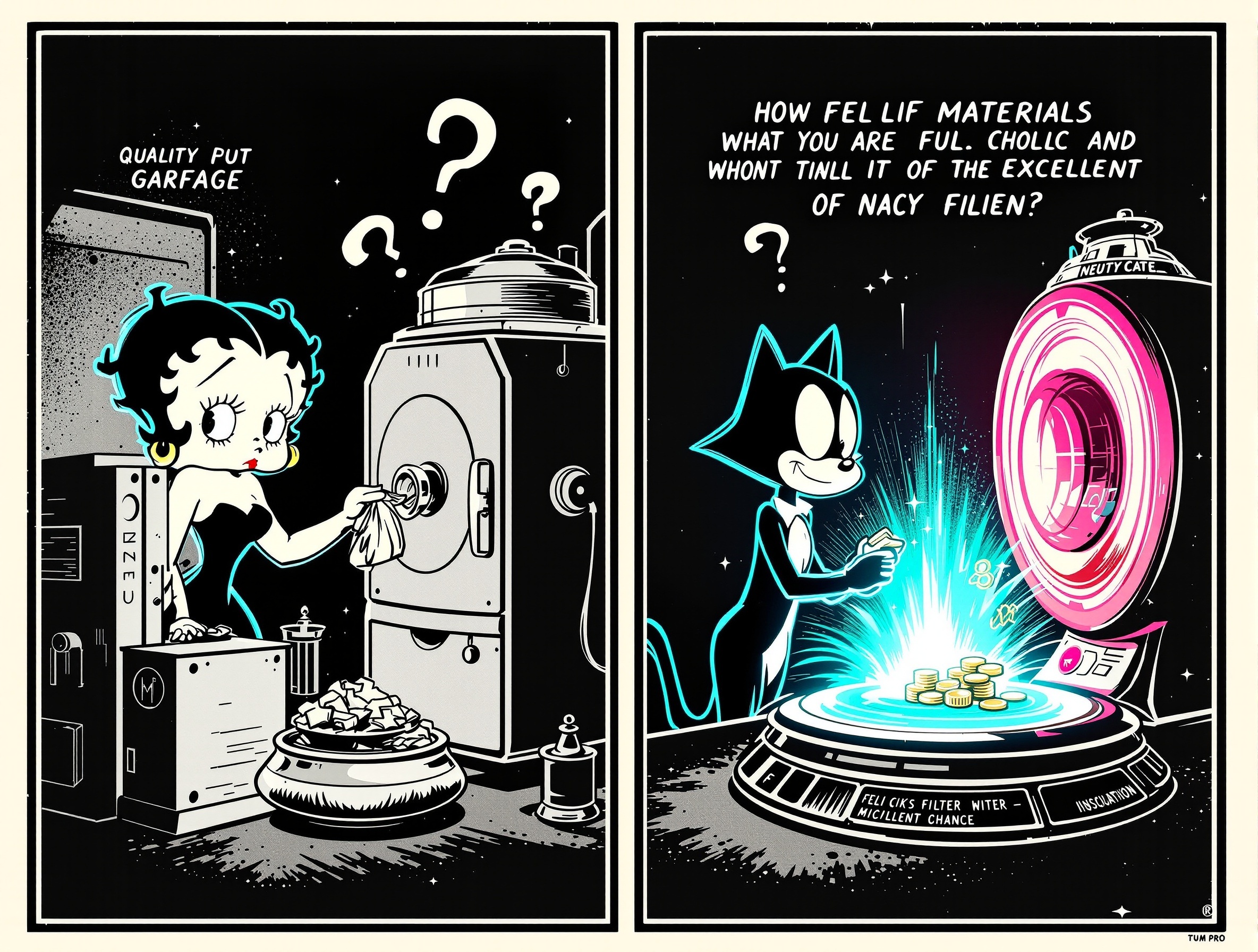
The Input Quality Revolution
The difference between creators who succeed with AI and those who struggle isn't access to better AI tools—it's the quality of their inputs. Consider these two approaches:
Poor Input Example:
"Make me a viral TikTok video about fitness"
Result: Generic, soulless content that fails to connect
Strategic Input Example:
"Create a 15-second TikTok hook that makes busy parents feel understood about their fitness struggles, using the 'problem-agitation-solution' pattern from viral content that gets 2M+ views. Target emotion: relief and motivation. Key constraint: must be achievable in 10 minutes daily."
Result: Meaningful, targeted content that resonates and converts
The Formula: Context + Emotion + Pattern + Constraints = Viral Content
Chapter 2: The Steering Wheel Principle - You Are Always the Driver
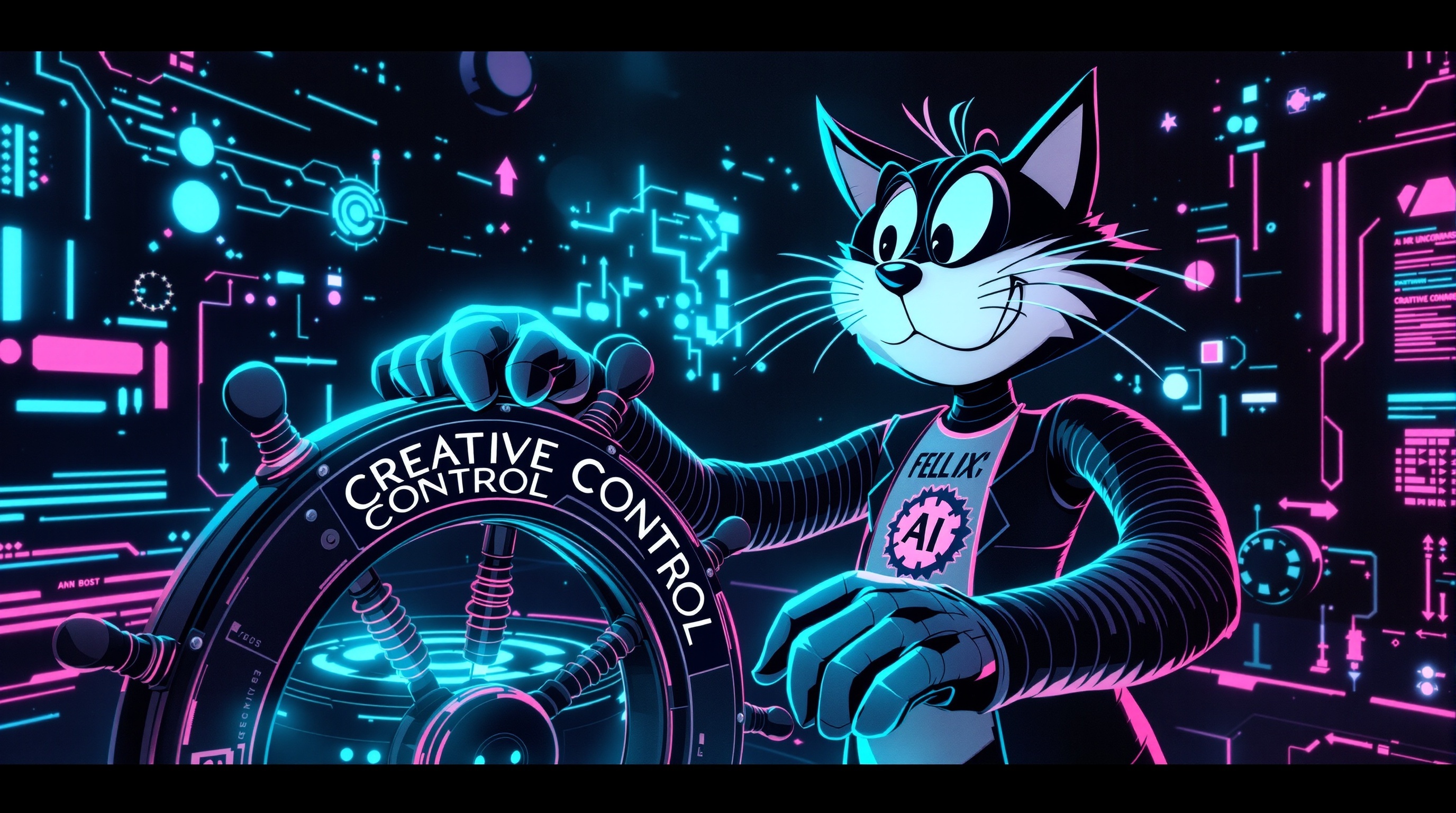
In the Human-AI creative partnership, you maintain control through five critical pillars that only human intelligence can provide:
The Five Pillars of Human Creative Control
- Vision Setting - Defining the purpose and direction of your content
- Emotional Intelligence - Understanding what truly resonates with audiences
- Cultural Context - Navigating nuance, timing, and appropriateness
- Quality Judgment - Determining what's meaningful versus technically correct
- Strategic Direction - Aligning content with long-term goals and brand values
Why Collaboration Beats Competition
The "AI takeover" narrative in creativity stems from fundamental misunderstanding. It's like fearing calculators will take over mathematics—missing that tools amplify human capability rather than replacing human intelligence.
AI cannot:
- Generate truly original concepts without human prompting
- Possess emotional intelligence and contextual understanding
- Judge cultural relevance
- Iterate based on subtle human feedback and intuition
The Multiplication Effect: Human × AI
When human creativity combines with AI capability, the result isn't addition (Human + AI) but multiplication (Human × AI):
Human Creative Strengths:
- Emotional intelligence and empathy
- Cultural context and nuance understanding
- Vision and purposeful direction
- Intuitive quality assessment
- Meaningful goal setting
- Authentic voice and perspective
AI Processing Strengths:
- Rapid ideation and variation generation
- Pattern recognition across vast datasets
- Technical execution and refinement
- Tireless iteration and testing
- Format adaptation and optimization
- Scale processing without fatigue
The Combined Result:
- Human vision executed at superhuman scale
- Creative concepts refined through thousands of iterations
- Ideas tested and optimized beyond individual human capacity
- Personal creative voice amplified across multiple formats and platforms
- Authentic meaning maintained while achieving viral reach
Chapter 3: The Partnership Advantage
The Human-AI creative partnership creates three competitive advantages that neither humans nor AI can achieve alone:
Speed Without Losing Soul
- Rapid execution of deeply meaningful concepts
- Quick iteration while maintaining creative vision
- Fast exploration of creative territories guided by human intuition
Scale Without Losing Authenticity
- Personal creative voice amplified across platforms
- Consistent quality at volume
- Individual creativity meets market demands efficiently
Innovation Without Losing Connection
- Novel combinations with human understanding
- Creative risks informed by human cultural knowledge
- Experimental approaches grounded in real human needs
PART 2: METHODOLOGY
The Viral Content Deconstruction & Reconstruction System

Chapter 4: The Viral Content Deconstruction Framework
Viral content isn't magic—it's science. Every piece of content that achieves massive reach follows identifiable patterns that can be systematically analyzed, extracted, and reconstructed. This chapter provides the framework for becoming a "content archaeologist."
Step 1: Content Archaeology - Building Your Viral Library
Where to Find Viral Content Worth Studying:
- Platform Native Tools: TikTok's "For You" page, Instagram's Explore, YouTube Trending
- Cross-Platform Analytics: VidIQ, Social Blade, BuzzSumo for engagement tracking
- Niche-Specific Sources: Industry hashtags, competitor analysis, audience behavior tracking
- Historical Analysis: Content that maintained engagement over time, not just initial spikes
The V.E.S.T. Selection Criteria:
- Views: Minimum thresholds (100k+ for niche, 1M+ for broad appeal)
- Engagement: Like-to-view ratios above 5%, comment rates above 1%
- Shareability: Evidence of cross-platform spread, frequently saved/bookmarked
- Timing: Sustained performance over days/weeks, not just algorithmic luck
Step 2: Deep DNA Analysis - The 4 Core Elements
Hook Analysis: The First 3 Seconds
The hook determines whether content lives or dies. Analyze successful hooks by examining:
- Visual Elements: Movement, contrast, unexpected imagery
- Audio Elements: Music choice, sound effects, vocal tone
- Text Elements: On-screen text positioning, readability
- Curiosity Gaps: Questions raised, promises made
Structure Mapping: Pacing, Tension, and Resolution
Create a timeline breakdown of successful content:
- 0-3 seconds: The Hook
- 3-8 seconds: The Development
- 8-15 seconds: The Climax
- 15+ seconds: The Resolution/Call-to-Action
Emotional Triggers: Mapping the Feeling Journey
Document the emotional arc:
- Primary Emotion: What's the dominant feeling? (curiosity, anger, joy, surprise)
- Secondary Emotions: What supporting feelings enhance the primary emotion?
- Emotional Transitions: How and when do feelings shift?
- Resolution Emotion: How does the audience feel at the end?
Pattern Recognition: Identifying Repeatable Formulas
Look for structural patterns across multiple viral pieces:
- Narrative Structures: Problem-solution, before-after, list format, story arc
- Visual Patterns: Camera angles, editing rhythms, color schemes
- Audio Patterns: Music timing, voice inflection patterns, sound effect usage
- Interaction Patterns: When and how audience engagement is encouraged
Step 3: Pattern Extraction & Documentation
Organize discovered patterns into reusable templates using this framework:
Viral Pattern Documentation Template:
- Pattern Name
- Platform Performance
- Audience Segment
- Core Structure
- Key Elements
- Customization Points
- Success Metrics
Chapter 5: The V.I.R.A.L. Framework - Your Strategic System
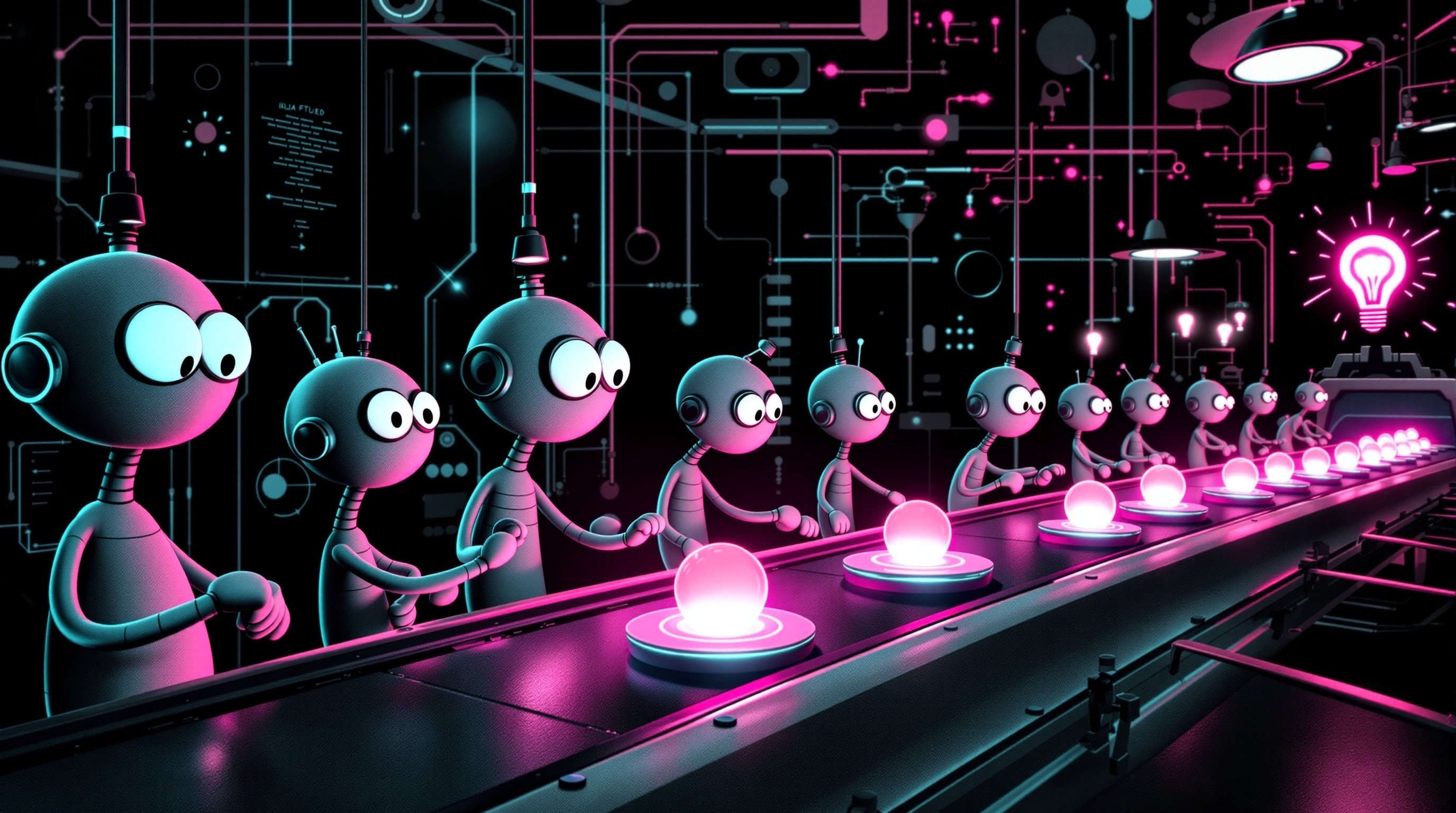
The V.I.R.A.L. framework transforms chaotic content creation into systematic viral content production:
V - Vision-Driven Content
Aligning with Human Goals:
- Define Clear Objectives
- Establish Emotional Goals
- Set Cultural Context
- Identify Audience Transformation
I - Input Optimization
Fixing the Calculator Problem:
- Context-Rich Prompting
- Pattern Integration
- Constraint Specification
- Quality Criteria
R - Repeatable Framework
Systematic Approach:
- Standardized Processes
- Template Libraries
- Quality Checklists
- Scalable Systems
A - Analytical Refinement
Data-Informed Iteration:
- Performance Tracking
- Pattern Analysis
- Feedback Integration
- Continuous Optimization
L - Leveraged Execution
AI-Powered Scaling:
- Automated Variation
- Cross-Platform Adaptation
- Rapid Iteration
- Efficiency Multiplication
Chapter 6: The Reconstruction Strategy - From Analysis to Creation
Phase 1: Strategic Input Design (The Human Control Phase)
This phase is entirely human-controlled and determines the success of everything that follows. Poor inputs here guarantee poor outputs, regardless of AI sophistication.
Defining Clear Creative Objectives:
- Primary Goal
- Success Metrics
- Time Frame
- Resource Constraints
Establishing Emotional Outcomes:
- Primary Emotion
- Emotional Journey
- Resolution Emotion
- Action Emotion
Setting Audience Context Parameters:
- Demographics
- Psychographics
- Platform Behavior
- Content Preferences
Phase 2: Framework-Driven Prompting
This phase translates your human vision into AI-actionable instructions.
The Anatomy of a High-Quality Prompt:
- Context Setting
- Pattern Integration
- Constraint Specification
- Quality Criteria
Example Prompt Template:
"Create [content type] that makes [target audience] feel [primary emotion] about [core topic]. The content should follow the [specific viral pattern] structure that typically achieves [engagement metric] on [platform]. The audience should transform from feeling [starting emotion] to [ending emotion] by understanding [key insight]. Success means [specific outcome metric]."
Phase 3: AI-Assisted Creation
Using AI for Rapid Ideation:
- Generate 10-50 variations
- Cross-pollinate ideas
- Explore creative territories
- Test different angles
Leveraging AI for Format Adaptation:
- Platform Optimization
- Length Variations
- Format Diversification
- Audience Segmentation
Phase 4: The Discipline Filter (Human Quality Control)
This final phase ensures AI-generated content meets human standards for quality, authenticity, and strategic alignment.
Content Quality Filter Checklist:
- Relevance Assessment
- Emotional Resonance Testing
- Cultural Appropriateness Review
- Brand Alignment Verification
Chapter 7: Cross-Platform Reconstruction

One viral concept can become multiple pieces of platform-optimized content. Here's how to maintain the viral DNA while adapting to each platform:
| Platform | Format Requirements | Tone Adjustments | Platform-Specific Hooks |
|---|---|---|---|
| TikTok | 15-60 seconds, 9:16 vertical, trending audio | Casual, energetic, trend-aware | Visual surprises, trending sounds, text overlays |
| Instagram Reels | 15-90 seconds, 9:16 vertical, high visual quality | Polished casual, aspirational | Aesthetic visuals, lifestyle integration |
| YouTube Shorts | 60 seconds max, 9:16 vertical | Educational-entertainment | Strong thumbnails, clear promises |
| Text posts, professional images | Professional, insightful | Industry insights, professional challenges |
Cross-Platform Adaptation Strategy
Step 1: Identify the Core Viral Elements
- Central Message
- Emotional Core
- Structural Pattern
- Hooks
Step 2: Map Platform-Specific Opportunities
- TikTok: Trend integration, quick entertainment
- Instagram: Visual storytelling, community building
- YouTube: Deep value delivery, education
- LinkedIn: Professional insights, thought leadership
Step 3: Adapt While Preserving Viral DNA
Formula: Viral Core + Platform Format + Audience Context = Optimized Content
Chapter 8: Working Commands for AI Collaboration
Effective AI collaboration requires specific command structures that maintain human creative control while leveraging AI processing power.
Vision-Setting Commands
"Help me explore creative directions for [specific human goal] that make [target audience] feel [desired emotion] while addressing their core challenge of [specific problem]. The content should ultimately lead them to [desired action/transformation]."
Direction Commands
"Take this concept in a more [specific direction] direction while keeping the core message about [human element]. Adjust the [specific aspect] to better resonate with [audience characteristic]."
Quality Control Commands
"Evaluate these options against [human criteria] and identify which best serves [specific human need]. Explain your reasoning based on [evaluation framework]."
Iteration Commands
"Improve this concept by strengthening [specific weakness] while maintaining [existing strength]. Focus on better achieving [specific human outcome]."
PART 3: IMPLEMENTATION
Putting It All Together
Chapter 9: The 30-Day Viral Content System

This systematic 30-day program transforms you from content creator to viral content strategist through progressive skill building.
Week 1: Deconstruction Phase - Building Your Viral Intelligence
Day 1-2: Platform Reconnaissance
- Identify 10 pieces of viral content in your niche
- Document engagement metrics and initial observations
- Organize findings in your viral content library
Day 3-4: Deep DNA Analysis
- Perform detailed deconstruction of top 5 pieces using the 4 Core Elements framework
- Map emotional journeys and identify structural patterns
- Begin pattern categorization and template creation
Day 5-6: Cross-Platform Pattern Analysis
- Analyze how successful concepts adapt across platforms
- Document platform-specific optimization strategies
- Create cross-platform adaptation templates
Day 7: Week 1 Synthesis
- Compile findings into comprehensive viral pattern library
- Identify top 3 patterns most relevant to your content goals
- Plan Week 2 framework development priorities
Week 2: Framework Development - Building Your Creative Systems
Day 8-9: V.I.R.A.L. Framework Implementation
- Define your Vision-Driven Content strategy
- Develop Input Optimization templates and prompt frameworks
- Create initial quality control checklists
Day 10-11: AI Collaboration Setup
- Build your library of AI command templates
- Practice framework-driven prompting with test concepts
- Refine prompts based on AI output quality
Day 12-13: Creative Brief and Template Development
- Create detailed creative brief templates for different content types
- Develop platform-specific adaptation workflows
- Build quality assessment criteria and metrics
Day 14: Week 2 Integration
- Integrate all frameworks into cohesive workflow system
- Test complete workflow with practice content creation
- Refine system based on initial testing results
Week 3: Production & Testing - Creating Your First Viral Batch
Day 15-16: Strategic Content Planning
- Select top viral patterns and create detailed creative briefs
- Use AI collaboration to generate initial content concepts
- Apply Discipline Filter and refine best concepts
Day 17-18: Multi-Platform Creation
- Produce platform-optimized versions of top concepts
- Apply cross-platform reconstruction strategies
- Quality control review and final refinements
Day 19-20: A/B Testing Setup
- Create content variations for testing different elements
- Set up analytics tracking and success metrics
- Launch initial content batch with staggered timing
Day 21: Week 3 Performance Analysis
- Analyze initial performance data and audience feedback
- Identify successful elements and improvement opportunities
- Document learnings and update pattern library
Week 4: Optimization & Scaling - Building Your Viral Engine
Day 22-23: Performance Optimization
- Deep analysis of best-performing content elements
- Refine successful patterns and update templates
- Create optimized versions of underperforming content
Day 24-25: Scaling System Development
- Build efficient workflows for high-volume content production
- Create batch processing systems for AI collaboration
- Establish quality control processes that scale
Day 26-27: Advanced Pattern Implementation
- Implement advanced viral patterns from your research
- Create content series using successful patterns
- Launch scaled content production test
Day 28: System Evaluation and Future Planning
- Comprehensive review of 30-day results and learnings
- Refine complete viral content system based on data
- Plan next 30-day cycle with advanced strategies
Chapter 10: Common Pitfalls & Solutions
Even with systematic frameworks, creators encounter predictable challenges. Here's your troubleshooting guide:
| Problem | Root Cause | Strategic Solution |
|---|---|---|
| Poor AI Outputs | Weak inputs, vague prompts | Implement framework-driven prompting with detailed creative briefs |
| Generic Content | Insufficient deconstruction | Deeper pattern analysis using 4 Core Elements framework |
| Losing Authenticity at Scale | Too much AI, not enough human control | Discipline Filter implementation |
| Inconsistent Performance | No systematic approach | V.I.R.A.L. Framework implementation |
| Platform Algorithm Struggles | Ignoring platform-specific requirements | Cross-platform reconstruction strategy |
| Creative Burnout | Trying to replace human creativity | Partnership mindset—use AI for processing power |
| Low Engagement Despite Quality | Missing emotional connection | Emotional journey mapping and audience transformation focus |
| Viral Content That Doesn't Convert | Entertainment without strategic purpose | Vision-Driven Content approach |
Advanced Troubleshooting Strategies
When AI Outputs Feel "Off":
- Did you provide sufficient cultural and emotional context?
- Are you referencing specific successful patterns?
- Have you defined clear quality criteria?
- Is your prompt structured properly?
When Content Performs Below Expectations:
- Hook Analysis: Does the first 3 seconds create immediate engagement?
- Emotional Journey: Is there a clear emotional arc?
- Platform Fit: Does this align with platform-specific behaviors?
- Audience Alignment: Does this serve your audience's real needs?
When Scaling Reduces Quality:
- Implement batch processing with consistent quality control
- Use standardized checklists across all content
- Personally review representative samples
- Build feedback loops to catch issues quickly
- Track quality metrics alongside volume metrics
Chapter 11: Success Metrics & Continuous Improvement
Strategic viral content creation requires systematic measurement and optimization.
What to Measure: The Viral Content Metrics Hierarchy
Tier 1: Viral Performance Indicators
- Engagement Rate (Target: 5%+ for most platforms)
- Share Rate (Target: 1-3% depending on platform)
- View-Through Rate (Target: 70%+ for short-form)
Tier 2: Strategic Business Metrics
- Audience Growth Rate
- Profile Visit Rate
- Conversion Rate
- Brand Awareness Lift
- Long-term Engagement
Tier 3: Content Quality Indicators
- Audience Sentiment
- Brand Alignment Score
- Cultural Relevance
- Authenticity Measures
- Educational Value
Building Feedback Loops for Continuous Improvement
The Weekly Performance Review System:
Monday: Data Collection
- Compile performance metrics from all platforms
- Document audience feedback and comments
- Note external factors affecting performance
Tuesday: Pattern Analysis
- Identify top-performing content elements
- Analyze underperforming content for improvement opportunities
- Update viral pattern library with new insights
Wednesday: Strategic Assessment
- Evaluate alignment between performance and strategic goals
- Assess audience growth and engagement quality
- Review brand alignment and authenticity measures
Thursday: Optimization Planning
- Develop specific improvements for upcoming content
- Refine AI prompts based on performance learnings
- Plan A/B tests for uncertain elements
Friday: System Updates
- Update templates and frameworks with new insights
- Refine quality control checklists
- Document best practices and lessons learned
Chapter 12: The Future-Proof Creator
The landscape of AI-powered content creation evolves rapidly. This chapter ensures your approach remains effective as technology advances.
Maintaining Human Creative Control as AI Evolves
The Timeless Human Advantages:
- Cultural Intuition
- Emotional Authenticity
- Value Alignment
- Strategic Vision
- Quality Judgment
Evolving Your AI Collaboration Skills
As AI becomes more sophisticated, focus on:
- Advanced Prompting
- Multi-Modal Integration
- Quality Refinement
- Ethical Oversight
- Efficiency Optimization
The Platform-Agnostic Content Strategy
Universal Viral Principles:
- Human Connection
- Emotional Engagement
- Authentic Voice
- Value Delivery
- Cultural Relevance
Algorithm Adaptation Strategies:
- Diversified Presence
- Owned Media Development
- Cross-Platform Syndication
- Community Building
- Value-First Approach
Building Sustainable Creative Systems
Sustainability Principles:
- Scalable Processes
- Energy Management
- Quality Standards
- Continuous Learning
- Authentic Expression
Final Thought: The Human Touch in an AI World
This guide has provided you with comprehensive frameworks, systematic processes, and strategic approaches to viral content creation. But remember: the most powerful tool you possess isn't any AI system—it's your human ability to understand what matters to people, to feel what resonates emotionally, and to create meaning that connects.
Use AI as your creative calculator, but never forget that you're the mathematician deciding which calculations matter. Scale your creativity, maintain your authenticity, and always serve your audience's real human needs.
Now go create content that goes viral for all the right reasons.
Your Viral Content Mastery Checklist:
- Understand AI as your creative calculator (right inputs = right outputs)
- Maintain human control over vision, meaning, and emotional resonance
- Systematically deconstruct viral content to extract patterns
- Apply the V.I.R.A.L. framework for strategic content creation
- Use framework-driven prompting for quality AI collaboration
- Adapt content across platforms while preserving viral DNA
- Build sustainable systems for continuous improvement
- Focus on authentic human connection at scale